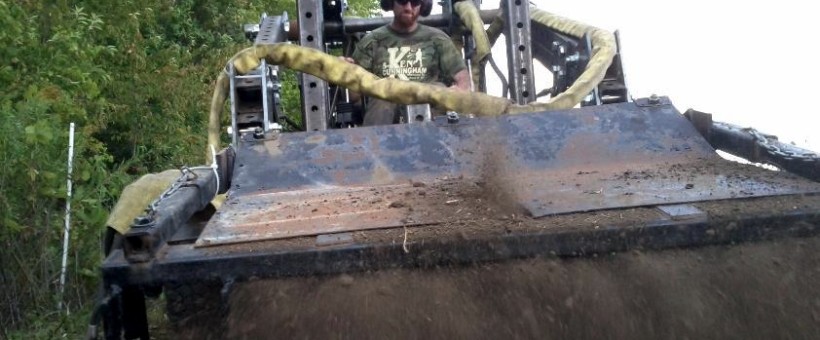
The Microhouse 1.0 build has been a huge success. We have proved that the concept is sound – inexperienced builders can come together and use OSE machines and processes to quickly erect fully-functional, cost-sensitive, and beautiful architecture. All they need is the plan for how to do it and guidance from someone who has done it before.
Now that we have been through the prototype process and found it to be largely effective, we can easily harvest the low-hanging fruit and optimize the next build. The workflow of parallel processing prefab panels while brick walls are being stacked offers the opportunity to accomplish in a one-week time period what often takes two weeks or more during natural building workshops.
We have many exciting projects to get underway in 2014.
Workshops
We will be offering hands-on educational workshops to the public, hosted at Factor e Farm and other locations around the country, where participants can learn how to build their own Microhouses.
Microhouse Design Competition
We will also be developing and releasing a prototype version of a Microhouse Design Competition for interdisciplinary teams of architects, landscape architects, and planners. This competition will fuel innovation in future Microhouse iterations and breathe enormous wind into the sails of the Microhouse as an open source project. It will hold a unique appeal for designers, too, as part of the prize is that the winners will get to see their design come to life and even help build it.
Microhouse Iterations
In addition to the ideas generated from the design competition, we will continue to drive the evolution of the project in-house, with several branches of direction for the Microhouse:
- Living Building Challenge Certified Model – a micro house that would meet the most stringent and visionary set of sustainability metrics that have been established.
- Third-World Model – a model designed to be constructed in places without access to all the things we take for granted here, like power tools, building supply stores, dimensional lumber, and so on.
- Code-approved Model – envisioning what the Microhouse would look like if it were to be built according to code.
Collaboration with John Motloch’s “Sustinable Land Systems” Course
We will be collaborating with professor of Landscape Architecture John Motloch’s upper-level Sustainable Land Systems course to develop a Master Site Plan for Factor e Farm. A master plan is a tool that captures the values and goals of the organization into a plan for the built environment. The plan then guides future decision making but is flexible enough to allow for adaptation. This master plan will inform and help direct decisions for the upcoming 2014 building season.
Infrastructure Upgrades
We will be building out new infrastructure in the form of more Microhouses – both as a means of expanding OSE’s capacity to host talent on-site and also as a means of experimenting and refining the Microhouse concept. In addition to the new infrastructure, we will also be renovating existing infrastructure. The HabLab, as well as the earth bag and cob wood structures will all be receiving upgrades. Mid-range plans for upgrading infrastructure not part of round 1 will also be made.
Structural Straw Brick and Straw Board Products
We will be prototyping three things – straw brick/board, a process to make it, and a machine to make them with. We will immediately begin incorporating the straw brick and board into the Microhouse. The possibilities for wall systems with both insulative and thermally massive materials are far more compelling than a material with just one characteristic or the other.
I am very excited by what the next year holds for creating beautiful and sustainable infrastructure at FeF, expanding OSE’s educational outreach, creating new building materials for the GVCS with different thermal properties, and nurturing the fledgeling Microhouse into long-term collaborations so that it can spread its wings and take flight.
Chris Reinhart
Architectural Lead and Construction Manager



Comments are closed, but trackbacks and pingbacks are open.